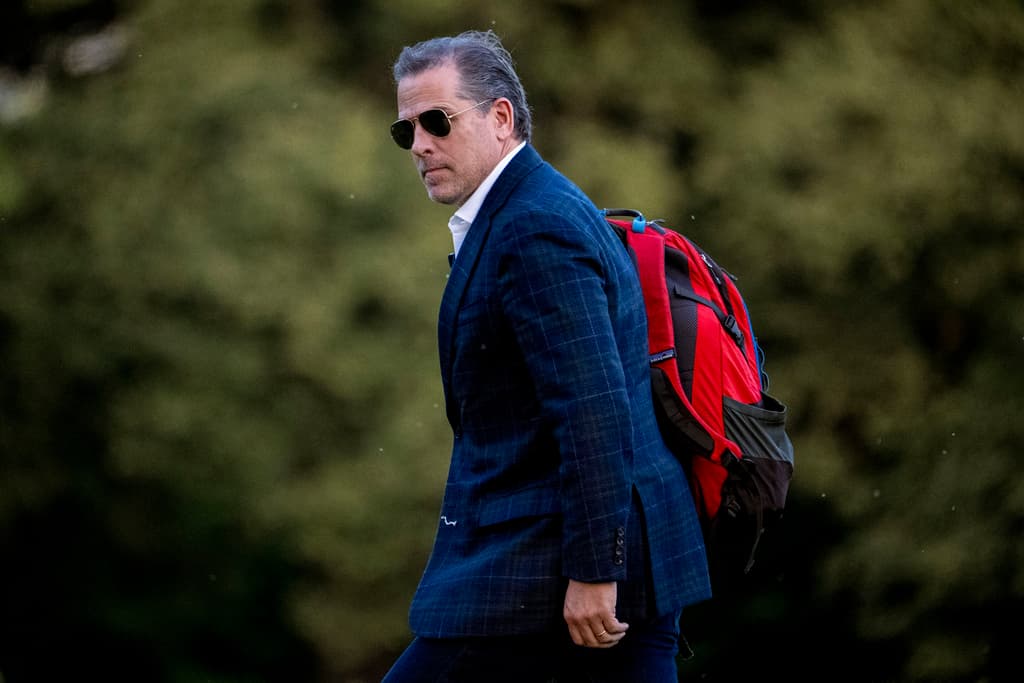Hunter Biden’s Failed Plea Deal Is Made Public, Including Immunity Agreement That Would Have Shielded Him From Further Prosecution
The ‘pre-trial diversion agreement’ also describes how Biden bought a handgun that ended up in a garbage can behind a Delaware supermarket.

As Hunter Biden’s legal team and prosecutors try to hammer out a revised plea agreement that could let the first son off without seeing the inside of a prison cell, a federal court has released the pre-trial diversion agreement that caused the presiding judge to delay the plea deal in its entirety on July 26.
The judge overseeing the affirmation of Mr. Biden’s plea agreement, Maryellen Noreika, made the unusual decision to delay the acceptance of the first son’s guilty plea to two counts of “willful” misdemeanor tax evasion. The problem, she said, was the question of whether a pre-trial diversion program regarding Mr. Biden’s purchase of a handgun was legal as set forth in the agreement.
The plea agreement describes the fraud Mr. Biden used to purchase the gun, a Colt Cobra 38SPL revolver, on October 12, 2018, after multiple rehab stays and relapses due to addiction to crack cocaine, which the diversion agreement says he was using as often as every 15 minutes. The agreement describes how a few days after its purchase, the gun “was found in Biden’s vehicle along with drug remnants and paraphernalia” and “was subsequently discarded in a trashcan outside a supermarket in Greenville, Delaware, and later recovered by law enforcement.”
Politico previously reported that the gun had been discovered, then thrown in the trash, by Hallie Biden, Mr. Biden’s then-girlfriend, who was also his sister-in-law. According to Politico, Hunter told police that Ms. Biden threw out the gun because she was worried he would use it to kill himself.
As for the plea agreement, the proposed diversion agreement published Wednesday states, “The United States agrees not to criminally prosecute Biden … for any crimes encompassed” in the pre-trial diversion program, meaning as long as he adhered to the agreement — which included drug testing, searching for employment, and other stipulations — then he would be free from any and all criminal penalties.
The agreement continues, stating that it “does not provide any protection against prosecution for any future conduct by Biden or by any of his affiliated businesses.”
That short paragraph, which could potentially have immunized Mr. Biden from any prosecutions over his past business dealings, currently under investigation by three different congressional committees, is what caused Judge Noreika to furrow her brow. During the courtroom proceedings on July 26, which Mr. Biden attended in person, Judge Noreika asked both the prosecutors from the United States attorney for Delaware’s office as well as Mr. Biden’s legal team if this agreement meant Mr. Biden could not be prosecuted at all in the future, regardless of when the alleged crimes may have been committed.
“There are references to foreign companies, for example, in the facts section,” Judge Noreika said during the hearing, referring to the section of the agreement that disclosed some of the foreign lobbying Mr. Biden allegedly did on behalf of business interests. “Could the government bring a charge under the Foreign Agents Registration Act?” she asked.
Prosecutors said they could bring charges, while Mr. Biden’s attorneys said they “didn’t agree” with that characterization of the plea deal. The judge then asked both parties to step out of the room to resolve this issue, which they were unable to do. Mr. Biden has since entered a not-guilty plea on both charges of tax evasion as he awaits a final plea agreement that resolves the issue of immunity.
The constitutionality of the agreement came under scrutiny by Judge Noreika. The agreement stated that should Mr. Biden violate any of the deal’s provisions, then prosecutorial decisions would have to be signed off on by the judge herself.
“I’m not doing something that gets me outside my lane of my branch of government,” Judge Noreika said. She complained that both the prosecution and the defense wanted her to act as a “rubber stamp” for a deal in which she did not have full faith.
The pre-trial diversion agreement, which the two parties signed on July 26, also stipulates a number of restrictions on Mr. Biden’s activities should this kind of deal work out in the end. The original agreement states that he will enter a 24-month drug testing and probationary period, be barred from ever owning a firearm, not use drugs or alcohol, and submit himself to a national criminal forensic database, among other things.

